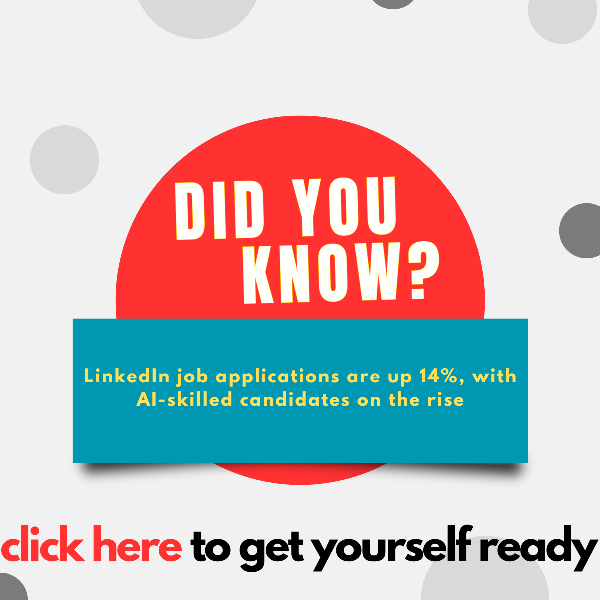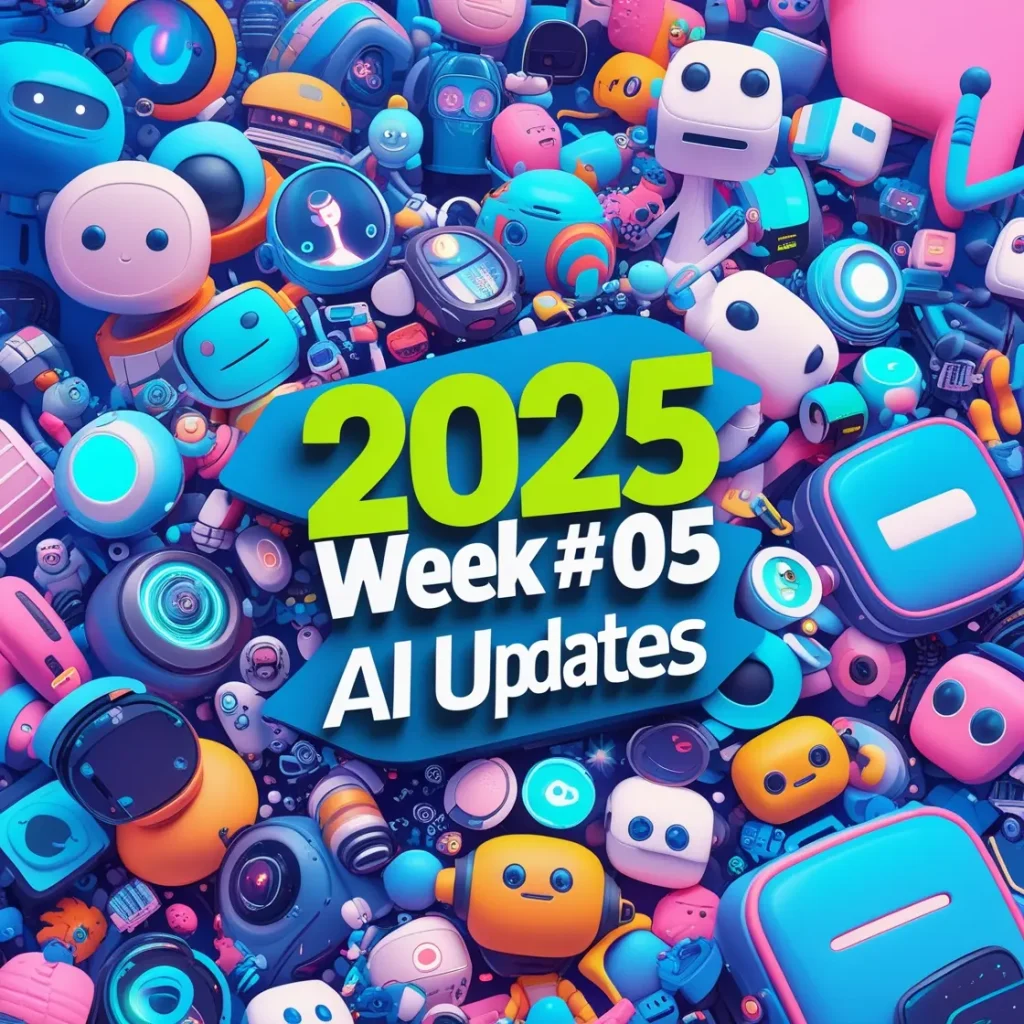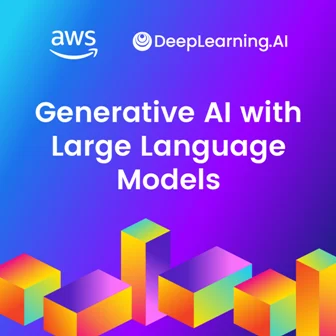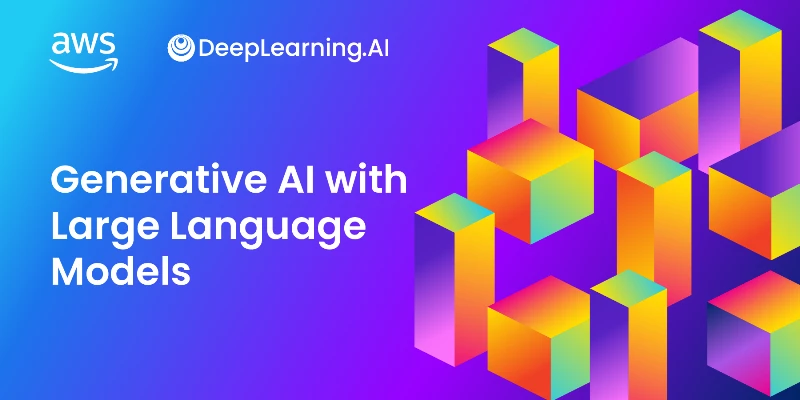Last Updated on February 4, 2025 by Editor
Anthropic’s New AI Security Method Blocks 95% of Jailbreak Attempts
Anthropic has unveiled a groundbreaking AI security method that reportedly blocks 95% of jailbreak attempts on its latest model, Claude 3.5 Sonnet. This innovative approach, termed “constitutional classifiers,” is designed to filter out the majority of malicious prompts without significant computational overhead. To validate its effectiveness, Anthropic has invited the red-teaming community to challenge this system through a demo focused on chemical weapons, running until February 10. As of now, the model remains unbroken, though minor interface bugs have been reported. This initiative underscores Anthropic’s commitment to enhancing AI safety and robustness against adversarial attacks.
Accel Invests in Indian AI Startup Developing ‘ChatGPT for Presentations’
Venture capital firm Accel has invested in an Indian AI startup aiming to revolutionize the way presentations are created. Dubbed as developing a ‘ChatGPT for Presentations’, this startup leverages advanced natural language processing to automate and enhance the presentation creation process. The tool is designed to assist users in generating content, designing slides, and providing contextual suggestions, thereby streamlining workflow and boosting productivity. This investment highlights Accel’s focus on innovative AI solutions that address practical challenges in professional settings.
Cinamon, supported by South Korean tech giant Naver, has successfully raised funds to introduce an AI-powered video generator. This cutting-edge tool aims to simplify video content creation by enabling users to generate high-quality videos through intuitive prompts. By harnessing artificial intelligence, Cinamon seeks to democratize video production, making it more accessible to individuals and businesses alike. The funding will be utilized to refine the technology and expand its market reach, reflecting the growing demand for AI-driven content creation tools.
Meta Considers Halting Development of High-Risk AI Systems
Meta has announced that it may cease the development of AI systems deemed too risky. This decision comes amid increasing concerns about the ethical implications and potential dangers associated with advanced AI technologies. Meta emphasizes its commitment to responsible AI development and is evaluating its projects to ensure alignment with safety protocols and ethical standards. This move underscores the tech industry’s broader recognition of the need for caution in pursuing artificial intelligence advancements.
DeepSeek Faces Global Bans Amid Security and Privacy Concerns
The Chinese AI company DeepSeek is facing bans from multiple countries and agencies due to growing data privacy and national security concerns. In the United States, Texas has prohibited DeepSeek and social media apps RedNote and Lemon8 on government-issued devices, citing fears of data security risks and potential ties to the Chinese Communist Party. Additionally, the U.S. Navy has banned its members from using DeepSeek’s AI chatbot over security and ethical concerns. In Taiwan, the government has officially blocked DeepSeek’s AI services across all government departments to safeguard national information security. Meanwhile, Italy’s Data Protection Authority has suspended access to DeepSeek, raising concerns about its data collection practices and potential privacy violations. Beyond governmental bans, hundreds of companies worldwide have also started restricting access to DeepSeek over fears that corporate data could be exposed to the Chinese government. These actions highlight the increasing global scrutiny on AI technologies and the necessity of prioritizing data security and privacy regulations in an era of growing AI adoption.
EU AI Act: What Businesses Need to Know as Regulations Go Live
The EU Artificial Intelligence Act officially comes into effect on February 2, 2025, marking a significant regulatory milestone for businesses operating within the European Union. This legislation introduces a risk-based framework categorizing AI systems into four levels: unacceptable, high, limited, and minimal risk. Notably, systems classified as unacceptable will face a ban, including those used for social scoring and untargeted facial recognition. Businesses must ensure compliance to avoid penalties, which could reach up to 7% of global annual revenue or €35 million. The upcoming enforcement dates signal a pivotal moment for AI governance in the EU, requiring companies to enhance their AI literacy among staff and evaluate their AI systems’ risk classifications.

Microsoft and OpenAI Investigate DeepSeek for Alleged Data Misappropriation
Microsoft and OpenAI are conducting an investigation into DeepSeek, a Chinese AI startup, for allegedly misappropriating proprietary data. The probe centers on suspicions that individuals associated with DeepSeek extracted substantial amounts of data from OpenAI’s API, potentially violating terms of service. The technique in question, known as “distillation,” involves enhancing AI models by learning from more advanced systems. This incident underscores the critical importance of safeguarding intellectual property in the rapidly evolving AI industry.
Alibaba’s Qwen 2.5-Max Surpasses DeepSeek V3 in Key Benchmarks
Alibaba has announced that its latest AI model, Qwen 2.5-Max, has outperformed DeepSeek V3 in several benchmarks, including Arena-Hard, LiveBench, LiveCodeBench, and GPQA-Diamond. This achievement highlights Alibaba’s advancements in AI research and development, positioning Qwen 2.5-Max as a formidable competitor in the AI landscape. The model’s superior performance in these rigorous evaluations underscores its potential for diverse applications across various industries.
Cerebras Hosts DeepSeek R1, Achieving Unprecedented Speed Over Nvidia GPUs
Cerebras Systems has announced that it will host DeepSeek’s R1 AI model on its U.S. servers, delivering speeds up to 57 times faster than traditional GPU-based solutions. This significant performance enhancement is attributed to Cerebras’ innovative wafer-scale processor, which eliminates memory bottlenecks by accommodating entire AI models on a single chip. The deployment of the 70-billion-parameter DeepSeek-R1 model achieves processing speeds of 1,600 tokens per second, marking a substantial improvement over previous implementations. This development addresses both the computational demands of advanced AI models and concerns regarding data sovereignty, as it ensures that sensitive data remains within U.S. borders.
Little Umbrella Secures $2 Million Following Success of ‘Death by AI’ Social Game
Little Umbrella, an emerging leader in AI-powered social gaming, has raised $2 million in funding after the success of its game ‘Death by AI’, which attracted 20 million players in its first three months. The game is a prompt-based survival experience driven by an AI game master, designed for play on platforms like Discord and the web. Investors in this funding round include Venture Reality Fund, a16z Speedrun, and Workplay Ventures. The capital will be used to scale live operations and expedite the launch of new titles powered by Little Umbrella’s proprietary cross-platform social game kit, Playroom. This success underscores the growing appeal of AI-integrated social gaming experiences.
How Thomson Reuters and Anthropic Built an AI That Lawyers Actually Trust
Thomson Reuters has successfully integrated Anthropic’s Claude AI into its legal and tax platforms, significantly enhancing its CoCounsel tool. This collaboration aims to provide legal professionals with AI-powered solutions that streamline complex workflows, ensuring accuracy and reliability in legal tasks. The integration focuses on improving document processing capabilities, enabling lawyers to efficiently analyze large volumes of legal texts while maintaining high standards of trustworthiness. This strategic partnership marks a pivotal advancement in the legal tech landscape, showcasing how AI can be tailored to meet the specific needs of the industry.
Sam Altman Admits OpenAI Was on the Wrong Side of History in Open Source Debate
In a candid admission, Sam Altman, CEO of OpenAI, acknowledged that the organization had previously taken a stance that was “on the wrong side of history” regarding the open-source debate in AI development. Altman’s reflection highlights the evolving nature of AI governance and the need for transparency and collaboration within the tech community. This shift in perspective underscores OpenAI’s commitment to fostering a more inclusive approach to AI development, recognizing that open-source contributions can enhance innovation and ethical considerations in artificial intelligence.
NVIDIA CEO Jensen Huang Discusses AI Policy with President Donald Trump
Jensen Huang, CEO of NVIDIA, recently met with President Donald Trump to discuss U.S. technology and AI leadership. The meeting underscored the importance of strengthening the nation’s position in the global AI landscape. Discussions likely encompassed topics such as semiconductor advancements, AI policy frameworks, and strategies to maintain technological competitiveness. This engagement highlights the critical role of public-private partnerships in shaping the future of AI and ensuring that the U.S. remains at the forefront of technological innovation.

OpenAI Introduces o3-mini: Advanced Reasoning Model Arrives to Counter DeepSeek’s Rise
In response to the rapid rise of competitors like DeepSeek, OpenAI has unveiled o3-mini, an advanced reasoning model designed to enhance AI’s analytical capabilities. The o3-mini model focuses on improved reasoning, particularly in complex fields such as mathematics, science, and engineering. By incorporating mechanisms that allow the AI to “think” more deeply and reflect on its reasoning processes, o3-mini aims to provide more accurate and contextually relevant responses. The model is now available across various platforms, including ChatGPT and OpenAI’s API, making it accessible to a broad range of users. This release signifies OpenAI’s commitment to advancing AI technology and maintaining a competitive edge in the evolving AI landscape.
Former Google and Meta Leaders Launch Palona AI: Bringing Personalized Emotive Customer Agents to Non-Techie Enterprises
Palona AI, a new startup founded by former leaders from Google and Meta, has officially launched with $10 million in seed funding. This innovative company aims to transform the customer service landscape by providing personalized AI sales agents that enhance customer interactions for direct-to-consumer (D2C) businesses. Palona’s technology is designed to create emotionally intelligent chatbots that can engage with customers in a manner reflective of the brand’s personality, ensuring a consistent and delightful experience. By utilizing proprietary data, such as training manuals and product inventories, Palona’s agents are capable of upselling and providing tailored recommendations, thereby improving customer engagement and satisfaction.
Mistral Small 3: Open Source AI for the Masses – Smaller, Faster, and Cheaper
The launch of Mistral Small 3 marks a significant advancement in the realm of open-source AI, making powerful machine learning tools accessible to a broader audience. This model is designed to be smaller, faster, and cheaper than its predecessors, allowing developers and businesses with limited resources to harness advanced AI capabilities. Mistral Small 3 aims to democratize AI technology by providing robust performance without the high costs typically associated with large-scale models. This initiative reflects a growing trend towards open-source solutions that empower users to innovate without financial constraints, fostering a more inclusive AI ecosystem.
Riffusion’s Free AI Music Platform: The Spotify of the Future?
Riffusion has launched a free AI music platform that could potentially reshape how we consume music, positioning itself as the Spotify of the future. By leveraging advanced algorithms, Riffusion allows users to generate unique music tracks based on specific inputs or preferences. This innovative approach not only enhances user engagement but also opens new avenues for creativity in music production. As the platform evolves, it may redefine traditional music consumption models by enabling personalized experiences that cater to individual tastes.
AI2’s Tülu 3 Surpasses DeepSeek v3 and GPT-4o with Innovative Post-Training
The Allen Institute for AI (AI2) has released Tülu 3, a fully open-source model boasting 405 billion parameters, which outperforms DeepSeek v3 and GPT-4o across critical benchmarks. This achievement is attributed to AI2’s novel post-training methodology, combining supervised fine-tuning, preference learning, and a unique reinforcement learning approach known as Reinforcement Learning from Verifiable Rewards (RLVR). RLVR utilizes verifiable outcomes, such as solving mathematical problems correctly, to fine-tune the model, resulting in superior performance.
Pig API Enables AI Agents to Automate Windows Applications via Virtual Desktops
Addressing the challenge of integrating modern AI solutions with legacy systems, Pig API offers a novel approach by providing AI agents with virtual desktops to automate Windows applications. This method allows AI agents to interact directly with graphical user interfaces within cloud-hosted virtual Windows desktops, facilitating the automation of tasks such as data entry and workflow management without the need for local infrastructure. This solution is particularly beneficial for enterprises reliant on legacy applications lacking modern APIs, offering a practical path to modernization.
U.S. Copyright Office Clarifies Stance on AI-Generated Content
The U.S. Copyright Office has issued new guidance stating that AI-generated content can be copyrighted if a human contributes to or edits it. This clarification was outlined in a report released on January 29, 2025, emphasizes that while purely machine-generated works are not eligible for copyright protection, those involving significant human intervention—such as editing, selection, or arrangement—qualify for protection under existing copyright laws. This development is crucial for creators and businesses utilizing AI in content creation, as it delineates the boundaries of intellectual property rights in the evolving landscape of AI-generated works.
Ex-Google and Apple Engineers Launch Unconditionally Open Source Oumi AI Platform
A team of former engineers from Google and Apple has unveiled the Oumi AI platform, designed to be an unconditionally open-source alternative aimed at democratizing access to advanced AI technologies. Launched with the vision of enabling developers to create their own AI systems without the constraints typically associated with proprietary platforms, Oumi AI seeks to empower non-tech enterprises to build solutions comparable to industry leaders like DeepSeek. The initiative reflects a growing trend towards open-source development in AI, fostering innovation and collaboration while reducing barriers for smaller businesses looking to leverage AI capabilities.
Abu Dhabi’s Ambitious Plan for an AI-Powered Government by 2027
The Department of Government Enablement in Abu Dhabi has unveiled the Abu Dhabi Government Digital Strategy 2025-2027, aiming to establish the world’s first fully AI-native government. With an investment of AED 13 billion, the strategy focuses on integrating AI across all government systems to enhance public service delivery and operational efficiency. Key initiatives include developing a robust digital infrastructure, achieving 100% adoption of sovereign cloud computing, and implementing over 200 innovative AI solutions. The plan also emphasizes citizen engagement through the ‘AI for All’ program, which seeks to train and empower residents in AI applications, contributing an estimated AED 24 billion to the GDP and creating around 5,000 new jobs by 2027.
Rad AI Secures $60 Million to Enhance Radiology with AI
Rad AI, a healthcare startup specializing in AI applications for radiology, has raised $60 million in a Series C funding round led by Transformation Capital. This investment brings the company’s total funding to over $140 million. Rad AI’s platform assists radiologists by automating report generation and follow-up recommendations, aiming to reduce burnout and improve patient care. The company’s AI-driven software has reportedly increased follow-up rates at health systems from 30% to 75% or more, highlighting its impact on enhancing healthcare delivery through technology.
MIT Chemists Harness Generative AI to Rapidly Calculate 3D Genomic Structures
Researchers at MIT have developed a groundbreaking method utilizing generative AI to predict the three-dimensional structures of genomes, significantly speeding up the analysis process. This innovative technique, known as ChromoGen, allows scientists to predict thousands of genomic structures within minutes, a task that traditionally required extensive time and resources. The model integrates deep learning with a dataset of over 11 million chromatin conformations, enabling it to generate accurate predictions based on DNA sequences. This advancement not only enhances the understanding of gene expression patterns but also opens new avenues for exploring how chromatin structure variations can influence cellular functions and disease mechanisms. The research highlights the potential of AI in transforming genomic studies, making complex analyses more efficient and accessible.
MIT Students Showcase Projects Redefining Human-AI Collaboration
In an exciting development, MIT students have embarked on projects aimed at redefining the concept of human-AI collaboration. Their work focuses on creating systems that enhance synergy between human creativity and artificial intelligence capabilities. By developing tools that facilitate better interaction and understanding between humans and AI, these students are paving the way for more effective applications across various fields, including art, design, and scientific research. This initiative underscores the importance of collaborative frameworks that leverage the strengths of both humans and machines, ultimately leading to innovative solutions and enhanced productivity.
DeepSeek’s AI Chatbot Vulnerable to Prompt Injection Attacks, Researchers Find
A report from Wired discusses recent vulnerabilities in DeepSeek, where security researchers have discovered that DeepSeek’s AI chatbot is susceptible to prompt injection attacks, with the system failing to block any of the 50 malicious prompts tested. This vulnerability raises significant concerns about the robustness of DeepSeek’s safety measures and the potential for misuse of its AI technology.
Exposed DeepSeek Database Reveals User Prompts and Internal Data
An investigation has uncovered that a DeepSeek database was left exposed on the internet, revealing over 1 million records, including user prompts and internal system logs. This exposure highlights critical lapses in data security and underscores the need for stringent protective measures in handling sensitive information within AI platforms.
SoftBank and OpenAI Collaborate to Launch AI Services in Japan
In a strategic move to advance artificial intelligence services in Japan, SoftBank Group and OpenAI have announced the formation of a joint venture named SB OpenAI Japan. This 50-50 partnership aims to integrate OpenAI’s cutting-edge technology across SoftBank’s diverse business portfolio, including notable entities like Arm and PayPay. The venture plans to employ 1,000 individuals in its inaugural year, with SoftBank committing an annual investment of $3 billion to this initiative. The collaboration focuses on the development of artificial general intelligence (AGI), with both companies expressing optimism that AGI can be realized more swiftly within large corporations due to their extensive resources and data access. Additionally, SoftBank plans to develop AI data centers in Osaka and Hokkaido, further supporting this ambitious project. This partnership aligns with Japan’s national strategy to bolster domestic AI capabilities, positioning both companies at the forefront of AI innovation in the region.
Tana Secures $25 Million to Enhance AI-Powered Knowledge Graph for Work
Emerging from stealth mode, Tana, an innovative startup specializing in AI-powered knowledge graphs, has successfully raised $25 million in funding. The company’s platform is designed to revolutionize workplace knowledge management by providing advanced organizational tools that cater to complex data structures. Notably, Tana has garnered significant interest, amassing a waitlist exceeding 160,000 potential users eager to adopt its technology.
OpenAI Introduces ChatGPT Agent for In-Depth Research
OpenAI has unveiled a new ChatGPT agent specifically designed for deep research to assist users in conducting comprehensive and complex research. Leveraging advanced AI capabilities, this agent can autonomously navigate and analyze vast amounts of information, providing detailed insights and summaries. This tool is particularly beneficial for professionals in fields such as finance, science, and engineering, aiming to streamline the research process and enhance productivity.
Hundreds of Companies Restrict DeepSeek Usage Over Data Security Concerns
A growing number of companies, now numbering in the hundreds, are implementing restrictions on the use of DeepSeek, an AI application developed by a Chinese startup. The primary concern centers around potential data security risks, with apprehensions that sensitive information could be accessed by the Chinese government. This trend reflects increasing caution among corporations regarding data privacy and the geopolitical implications of utilizing foreign-developed AI technologies.
AI Startup Perplexity Faces Lawsuit Over Alleged Trademark Infringement
Perplexity, a startup known for its AI-powered search tools, is currently facing a federal lawsuit alleging trademark infringement. The lawsuit claims that Perplexity has unlawfully utilized another company’s trademark since approximately August 2022 to promote its AI-driven products. This legal challenge underscores the importance of intellectual property rights and the complexities that can arise in the rapidly evolving AI industry.
Intel Receives $2.2 Billion in Federal Grants to Boost Domestic Chip Production
Intel Corporation has secured $2.2 billion in federal grants as part of the U.S. CHIPS and Science Act, aimed at enhancing domestic semiconductor manufacturing capabilities. This funding is part of a larger $7.86 billion grant awarded to Intel in November 2024, which is intended to support various projects across its facilities in Arizona, New Mexico, Ohio, and Oregon. The grants are tied to specific milestones that Intel must meet as it ramps up production and advanced packaging efforts. The CHIPS Act, signed into law to strengthen U.S. semiconductor production, represents a significant government investment in the industry, with a total of $52 billion allocated for domestic chip manufacturers. Despite some uncertainties regarding future funding under the new administration, Intel remains optimistic about its role in revitalizing the U.S. semiconductor landscape, which is crucial for both economic and national security.
Microsoft Establishes New Division to Examine AI’s Societal Impacts
Recognizing the profound influence of artificial intelligence on society, Microsoft is forming a dedicated unit to study AI’s impacts. This division will focus on understanding the ethical, social, and economic implications of AI technologies, ensuring responsible development and deployment. By proactively addressing potential challenges, Microsoft aims to foster trustworthy AI systems that benefit all users.
Google Unveils Next-Generation Flagship AI Model
In a strategic move to maintain its leadership in artificial intelligence, Google has quietly announced its upcoming flagship AI model. While specific details remain under wraps, the model is expected to offer significant advancements in natural language processing and machine learning capabilities. This announcement reflects Google’s ongoing commitment to maintaining its competitive edge in the rapidly evolving AI landscape, where innovation is key to capturing market share and meeting user demands for more intelligent applications.
OpenAI Reportedly in Talks to Raise $40 Billion at a $340 Billion Valuation
OpenAI is reportedly negotiating a substantial funding round that could raise up to $40 billion, valuing the company at approximately $340 billion. This potential investment underscores the growing interest from investors in AI technologies and OpenAI’s pivotal role in shaping the future of artificial intelligence. The funds are expected to be used for further development of OpenAI’s models and expansion into new markets, reflecting the increasing demand for advanced AI solutions across various industries.
Meta Invests in Solar Energy to Power Expanding Data Centers
As part of its commitment to sustainability, Meta is once again turning to solar energy to support its expanding network of data centers. By investing in large-scale solar projects, Meta aims to reduce its carbon footprint and promote the use of renewable energy sources. This initiative aligns with the company’s broader environmental goals and responds to increasing demands for energy-efficient infrastructure in the tech industry.









